
The Liquid Property
"And what is the liquid property?
The liquid property may be either internal or external.
What is the internal liquid property?
Whatever internal, belonging to oneself, is liquid, watery, & sustained: bile, phlegm, pus, blood, sweat, fat, tears, skin-oil, saliva, mucus, fluid in the joints, urine, or whatever else internal, within oneself, is liquid, watery, & sustained: This is called the internal liquid property. Now both the internal liquid property and the external liquid property are simply liquid property. And that should be seen as it actually is present with right discernment: 'This is not mine, this is not me, this is not my self.' When one sees it thus as it actually is present with right discernment, one becomes disenchanted with the liquid property and makes the mind dispassionate toward the liquid property.
"Now there comes a time, friends, when the external liquid property is provoked and washes away village, town, city, district, & country. There comes a time when the water in the great ocean drops down one hundred leagues, two hundred... three hundred... four hundred... five hundred... six hundred... seven hundred leagues. There comes a time when the water in the great ocean stands seven palm-trees deep, six... five... four... three... two palm-trees deep, one palm-tree deep. There comes a time when the water in the great ocean stands seven fathoms deep, six... five... four... three... two fathoms deep, one fathom deep. There comes a time when the water in the great ocean stands half a fathom deep, hip-deep, knee-deep, ankle deep. There comes a time when the water in the great ocean is not even the depth of the first joint of a finger.
"So when even in the external liquid property — so vast — inconstancy will be discerned, destructibility will be discerned, a tendency to decay will be discerned, changeability will be discerned, then what in this short-lasting body, sustained by clinging, is 'I' or 'mine' or 'what I am'? It has here only a 'no.'
Maha-hatthipadopama Sutta: The Great Elephant Footprint Simile


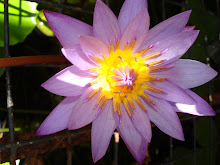















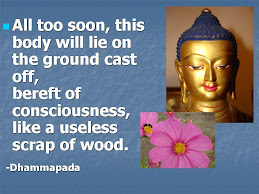









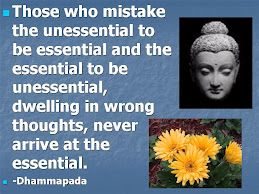

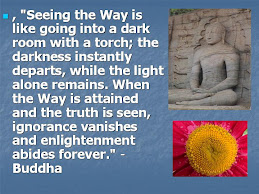




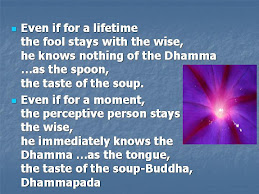



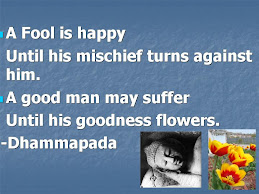
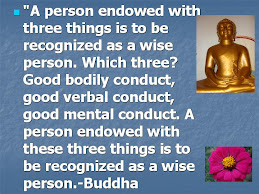

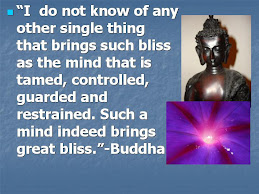
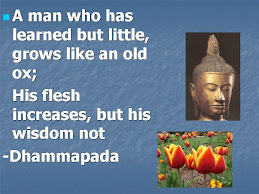
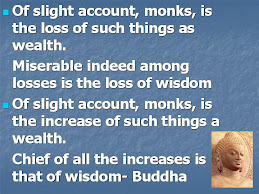





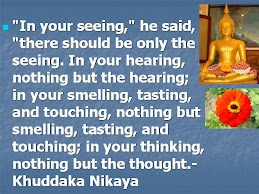




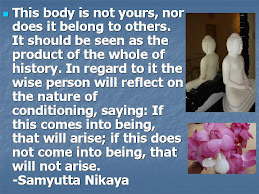
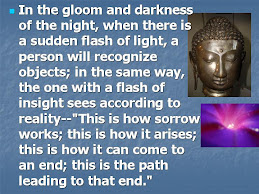
















No comments:
Post a Comment